
The Post Secondary Transition Conversation
We talk about the ins and outs (and everything in between) of the secondary transition process for families of students with disabilities! Hosts Meghan (Smallwood) and Patrick (Cadigan) serve as supportive guides, leading families step-by-step up each rung of the transition ladder.
Also check out our parent website: https://www.postsecondarytransition.com
The Post Secondary Transition Conversation
004. Parent Interview: The Nirschls pt.1
Links updated 10/2024!
Hosts Megan (Smallwood) and Patrick (Cadigan) interview Remy and Nick Nirschl, parents of a student with autism. Nick and Remy give insight on their current experiences around post-secondary transition. The family discusses a wide variety of topics and find more than a few "rabbit holes." Join us as we walk with this family on their journey.
Episode Keywords:
SSI, parents, child, autism, school, transition, Maryland, ABA, life, intensive therapy, question, Howard County, plan, milestones
Links:
MD Autism Society (site)
SSI (page)
SSI (site)
DD (page)
Maryland DDA (site)
To download a copy of a transcript for this episode or any of our previous conversations, click here.
Also visit our Podcast webpage to find links to all of our other discussions; go to www.p2transition.com.
Additional information about post-secondary transition can be found at our website.
The Post-Secondary Transition Podcast Facebook page.
Visit our YouTube Channel to find additional video resources.
Intro/Outro music by AudioCoffee from Pixabay.
Transition music by Joseph McDade from Transistor.
All right, I think I've hit the record button again. Are we recording?
Meghan Smallwood:Yes.
Patrick Cadigan:All right, well, good. Well, we are back for another episode of P2Transition or post secondary transition. I am one of the hosts. My name is Patrick Cadigan. Thanks for coming back. Who is my co host?
Meghan Smallwood:This is Megan Smallwood, and I have returned for more.
Patrick Cadigan:Well, good deal. Alright. So I am super excited about today's discussion, because we're actually going to be doing an interview for family do you want to give a little bit of a background about where this came from?
Meghan Smallwood:Oh, well, we're lucky enough to have a wonderful family that I've been working with for a few years, the nurses, their son is preparing to exit from the school system this year. And they've done a lot of hard work behind the scenes to prepare for this. So they're going to share their experience little bit about where they started, and how they've gotten to where they are now.
Patrick Cadigan:And I'm really, this is cool, because we've been talking about this for a while, like we've been holding on to this. And this is really something that we wanted to do. But before we get into our interview, why don't we let's talk about post secondary transition. And what does that mean? Like? If we right find it? What is it?
Meghan Smallwood:Because there's so many transitions during the school time. So Post Secondary Transition specifically focuses between ages and 14 through 21. And it's really helping to answer that question. What do you want for your child after they leave school? Which is a loaded question we know. But we here with this podcast are looking to help answer the question a bit by asking parents to think long term, their milestones do the research resources goals?
Patrick Cadigan:Yeah. And like, how do we define long term? Like, what? How do we define long term? I would say, What do you want your child to be doing after the school after the school bus stops coming? You know, which is different for everybody. It is a completely individualized experience. And along with that, individuality can come some loneliness, and in some cases, a sense of isolation. But that, but there are other families who are going through this. So probably probably at the same time, you are,
Meghan Smallwood:Exactly you're not alone in this. And along the journey. We're hoping to focus on the milestones. And some of those are built around timeframes, and in other cases, helps, it helps to term them, determine them, and figure out what are those milestones to talk about. So using your child's school experiences to help with doing the research, using the resources you have at your disposal, including that school Transition Specialists and other teachers is vital. There's a lot of information, there's a lot to consider. You don't want to be alone in this process. And in many cases, these the answers won't immediately present themselves. It's going to be a lot of give and take, there's gonna be things you'll do that you won't have that desired outcome, unfortunately, and trying to do it all at once can feel consuming. So with this podcast, we're hoping to help clear away some of that fog through the journey.
Patrick Cadigan:Fantastic. Well, then I would say without further ado, let's go ahead and get together with our family.
Nick Nirschl:I am Nick Nirschl. And
Remi Nirschl:I'm Remy Nirschl. And we have a son who is 20 years old, his name is Rich, and he goes to a public day school.
Nick Nirschl:And so when he was about a year old, he seemed to be doing pretty well maturing normally. And about that time, Remy seemed to start noticing some abnormalities, and the doctor tended to downplay it, and didn't really,
Remi Nirschl:he told me Oh, we'll just wait and see.
Nick Nirschl:So he was a little over a year old. And he started to have some odd behaviors and things and the doctor was like, well, it's just normal.
Remi Nirschl:He's a boy. But he was showing symptoms because I was a social worker, working in a day program rehabilitation for traumatic brain injury, and there was a section in the building for early development, children, and I used to see them walk around, and they would have behaviors like flapping hands and nonverbal and he was showing those same symptoms, and I was getting really nervous. So I went to the doctor and say, Look, this is what he's exhibiting and he just said, Well, you know, you weren't going to rehab. You're just projecting. Just wait and see. And I say What do you mean by what age are you going to review this? And he said, Oh, around five years old is when we will do So we had to just go, we had an HMO, and this was in the state of California, by the way, and we had to just pay out of pocket, go in debt, get a a diagnosis. And in the state of California, once you got to get a diagnosis, I was contacted Regional Center, I knew to do that, because I was I was a social worker. So you know, we, we waited for just a few months compared to here, which have to wait a long time. And then we got services, we got speech, we, they were going to hook us up to an early childhood development. But at that time, we had to Nick got a job in Maryland. And so we had to pick up everything and, and just start fresh again. At the age of still at the age of two, it was the same year. My Rude Awakening was that oh, my gosh, Maryland is different from California. We had to wait for seven, then he went to public school for all this time. We he's got great teachers, throughout, I think we were blessed to have had some great teachers along the way. Of course, there was tension back and forth. But two, I think it's the collaboration of that brought some really good, you know, goals, just for him. And now we're at this point.
Meghan Smallwood:And how long was he at the separate day school? Did he go right into it? When he started his schooling?
Nick Nirschl:No, he started off in a separate school. That was sort of an inclusion program that was that had kind of a How did that work? It was
Remi Nirschl:it was Howard County Public School, but they have the, you know, the special programming for
Meghan Smallwood:academic life skills programs.
Remi Nirschl:They have the combination is I think it was called Pink el MC p, which is included the sort of like the ABA program, right? Yeah.
Nick Nirschl:Right. And they would try to include him in various classes throughout the day.
Remi Nirschl:And we also had, they also allowed to pay for, like 15 hours of ABA intensive therapy. And then once he went into that was preschool once he went into kindergarten up to now president was on special ed, without in home service.
Meghan Smallwood:Right. So that's a separate day program.
Patrick Cadigan:What age did they finally identify your son with autism? Like when did you get the official diagnosis?
Nick Nirschl:That was 18 months. So we had gone to a separate person from UCLA who did the diagnosis. So I mean, there was a lot of early on, we were trying to trying to get some, you know, go through the regular doctor. And we did finally get him to be seen by a sort of autism specialist who said, yeah, he probably has autism, but but we'll wait until he's five. That was the one. That's when we said we need to get him diagnosed and cockin.
Remi Nirschl:And, you know, first they ruled out hearing up death because he wasn't responding to his name. So they ruled out ruled that out, once the psychologist did a thorough evaluation, she Yeah, diagnosed with autism at the age of two.
Nick Nirschl:And in it, because once we started getting those services, they were like, Oh, it's so important that they get early intensive therapy. And have we just listened to the doctor, you know, we wouldn't have gotten
Remi Nirschl:just a step back. This was back in again, in two
Nick Nirschl:to four. It was I guess, was 2002-2003. in two
Meghan Smallwood:Yeah, basically a long 20 years ago.
Remi Nirschl:The autism rates are like one out of 150. Now, it's one out of 44. I think. So people are now more aware. Pediatricians are more, you know, are looking into it now. Right, and will work. And if they parents have concerns, they will listen.
Nick Nirschl:Yeah, I mean, I feel like we were just at the cusp of when it was people were starting to realize it was a real issue. And there was starting to be more awareness of it. But we hadn't quite gotten to the point where we are now.
Patrick Cadigan:So as we fast forward now, to where your son is at right now, what does the school day look like for him?
Remi Nirschl:Well, so we he has to wake up real early in the morning at 630 to get him there. and ready to go foot with the bus picks him up at 715, which is really early for him. So that's been a challenge and from the school once he gets there, you know, they they have the the assembly they do from what I understand some vocational and life skills, they go out to the community. Is it once or twice a week?
Meghan Smallwood:Hoping to get back to twice?
Remi Nirschl:Yeah. So from there, he comes home around 245. And then I get him ready, because he's not done yet. Let him just do what he needs to do to rest and by three o'clock, because therapists comes we have an ABA therapist, yes, it's funded through our health insurance. And from three to six, he, he's there with him during life skills or what whatever program that is being implemented, that's prepared by the BCBA. And then his days. So that's his routine Monday through Friday,
Meghan Smallwood:So very functional, life skills driven day,
Nick Nirschl:and he's in a classroom with four other children. So it's a very small class size with I don't know what the ratio is, but I think it's close to one to one.
Meghan Smallwood:So I was gonna say, thinking back when that diagnosis was received, and you were planning the next steps, did it ever cross your mind about long term planning? What's his life going to look like? After school?
Remi Nirschl:Yes.
Nick Nirschl:Well, yeah, so initially, there's the shock, right? And and you start to wonder if you're starting to ask those questions, I think within a year or two of that kind of gotten my mind, okay, we'll deal with that. When we get to it, let's just see what we can get him to, I still had hope that at some point, he'd be able to be independent, it's at some point in his life, that's
Remi Nirschl:For me, that's was constantly reminded every single day. And even when he was young, what's his life going to be? And so anxiety over that really pushed me and maybe a little bit too hard on the teachers to get the goals, right, and to make sure that they're meeting the goals, because I always had that end in mind, like, wanted him to be at the point where he is self functioning, hopefully, Chroma and, but then along the way, as we were, you know, working towards those goals, I was noticing maybe, that what I wanted for him at the end starts changing, like, it depends upon how he's progressing. And I had to step back and say, Okay, I just gotta take a deep breath. And just, let's go do next thing. It's just get him to the point of what he could do now. I think that intensity of where I wanted him to be, it was so intense that it was, you know, I just had to let it go and just focus on the present moment. Where is he now where he can move?
Nick Nirschl:Yeah, I mean, it's funny, because we're kind of the opposite and how we approach life. I mean, I think that happens a lot with married couples is perfect. And so I've always been kind of, I don't spend time regretting and I kind of deal with now, but I don't plan for the future Remy in school, she would be if an assignment was given to her that was due six weeks from now she needed to do it tonight. And I'd wait until like a couple of weeks before it's due. And then my daughter would wait until the night before it's due. But that's how she kind of her approach to how to deal with Richie has always been like, we need to plan this we need to get it going.
Remi Nirschl:And I think he kind of taught me along the way to just relax and follow his lead and there are moments when he was just he's just so happy. You know, it's just happy and smiling and...
Meghan Smallwood:and so that's that's what you want for your child do you want to see that?
Remi Nirschl:That's where people that's the goal was goal is to just be happy right? He's already there. He's already there. And I just had to own
Meghan Smallwood:And I see from my cuz i i know you and I see from my side that you recognize that what makes him happy and as you're planning for the future, that's what you're you're striving for and I think you're on a great path. But going back to that you were kind of leading me that next question about planning for that post secondary world and how you like to be paired around what age did you start doing a little that research and starting to recognize like okay, I really need to see what I need to do to get us prepared for 21.
Remi Nirschl:At 14 years old, it was in the back of my mind, because I've been going to a lot of the informational meetings since he was since we came here to Maryland. So, as soon as he started school, I've been going to the, to the conferences, and right away, they said, just keep that in the back of your mind about transition, start in some one of the presenters that start at the age of 14, to just kind of explore more. And so at the age of 14, is when I did really attend more of the meetings that were provided by the school by the local Howard County, Autism Society. And I would just keep notes, and then I met a several parents along the way, with children that were transitioning, and I would talk to them and they said, It took them about three years. And to read and to go to as many of the the transition meetings to really get in, by the end of, you know, to really understand what what was happening because of resources. It's so overwhelming, it's so confusing, that it took them year after year after year, to finally to finally understand it, you know, so that's what a lot of the parents I've talked to have recommended to me is to, towards that church at the age of 16, not 14, 15, and 16. Try to go to those meetings year after year after year. And then at 16. That's when you start doing your research. Making a plan. 17 is when you start implementing the plan, and 18 is when you execute. And so I remember that just by talking to the parents going to those informational conferences and everything. I just remember that and then I just kept that in my notes. And that's what I did.
Meghan Smallwood:Great setup.
Patrick Cadigan:Remy, I did have one question for you. So what was the most useful, which is to say, did you find those transition meetings useful? Or did you find talking to other parents and families who were going through the process more useful for you?
Remi Nirschl:In the beginning, it was the parents, actually the parents through our parents, connecting with them, connecting to groups connecting to the Facebook groups, like the Howard County Autism Society has a group one of the parents. Her name is Bernadine. Bernadette, sorry. She created a Maryland transition Facebook group autism Facebook group. So I went into that when we were both in that one. And I know there's another group called self direction book. I mean, now when I mean, there are a lot of information out there on the internet. So connecting with parents is what's vital. But also, the infant the webinars, the conferences were really good too, especially the SSI one. That was that was really good because SSI can be very, very overwhelming. And there's so much information
Patrick Cadigan:When you say SSI, what is that?
Remi Nirschl:Oh, I'm sorry. It's a Social Security supplementary income.
Nick Nirschl:So the way I understand it is, so there's kind of two kinds of social security, right? There's the SSI and there's the SSDI SSI is for people who have never really paid into it. So a lot of the children with disabilities, our son in particular, were able to take advantage of once they turn 18. They they can get a monthly income to basically help them pay for living expenses.
Remi Nirschl:But you have to qualify for that.
Nick Nirschl:So there's a process to apply for it. We definitely took advantage of some of those information sessions to figure out how to put in the application.
Remi Nirschl:Yeah, it was. It's really confusing. Webs DDA website, developmental quality website. It's so there's so much information, and you just can go down a rabbit hole with China kind of go through it.
Nick Nirschl:I mean, the interesting thing was like once we went once we got the application in Burridge. It was really very quick. It happened right during the pandemic, and we ended up doing a phone call meeting with the person within a month or two. He was qualified and he was already receiving service or receiving benefits.
Remi Nirschl:And I think we were kind of a he was lucky in that we happen to work with an SSI representative, who was really just thoughtful and wanted to work with us, because I've heard stories from other parents that it took them months to get their child receiving SSI. And so we were he was lucky, we were lucky to have been paired up with somebody who helped us through the process. And it also helped, because the Autism Society had a conference a year here, they have a yearly conference with an SSI guru,
Meghan Smallwood:Michael Dalto.
Remi Nirschl:And he was helpful because we talked to him privately to four tips that he can help us. He gave us some really good information.
Nick Nirschl:Yeah, he really laid it out exactly what you have to say and how you location
Remi Nirschl:I need to point out to parents, which is important is for to apply for SSI, don't don't apply the day they turned 18. Wait until they're one month after they turn 18. Because if you apply too close to the date of when they just turned 18 parents income will be assessed, included in determining whether the child qualifies. And if you're making a lot of money, your child will get denied. You have to wait about about I would say about a month after the turn at so
Meghan Smallwood:and I know that Michael Dalto those sessions they did are on the Howard County Autism Society webpage recorded. So yeah, they're a great resource.
Remi Nirschl:He was really great. And yeah.
Meghan Smallwood:So that was the first part of our podcast series
Patrick Cadigan:Our interview series with our family.
Meghan Smallwood:Thank you. Please come back. For more, we're gonna do another second podcast with them. In the meantime, like and follow the podcast to make sure you're not missing any of our episodes as they come out. And be sure to tell other families about us. And more importantly, send us messages if there's a topic you want us to discuss or cover. If you have questions, just you just need some more insight on we are happy to cover it as much as we can.
Patrick Cadigan:So we have already gotten some feedback and we're looking forward to incorporating that in later on. So absolutely. All right. Well, I think I think we're done with part one.
Meghan Smallwood:Awesome.
Patrick Cadigan:All right. Bye, guys.
Meghan Smallwood:Bye.
Podcasts we love
Check out these other fine podcasts recommended by us, not an algorithm.

T21Mom-A Down Syndrome Podcast
T21Mom.com
The Collaborative IEP
Ashley Barlow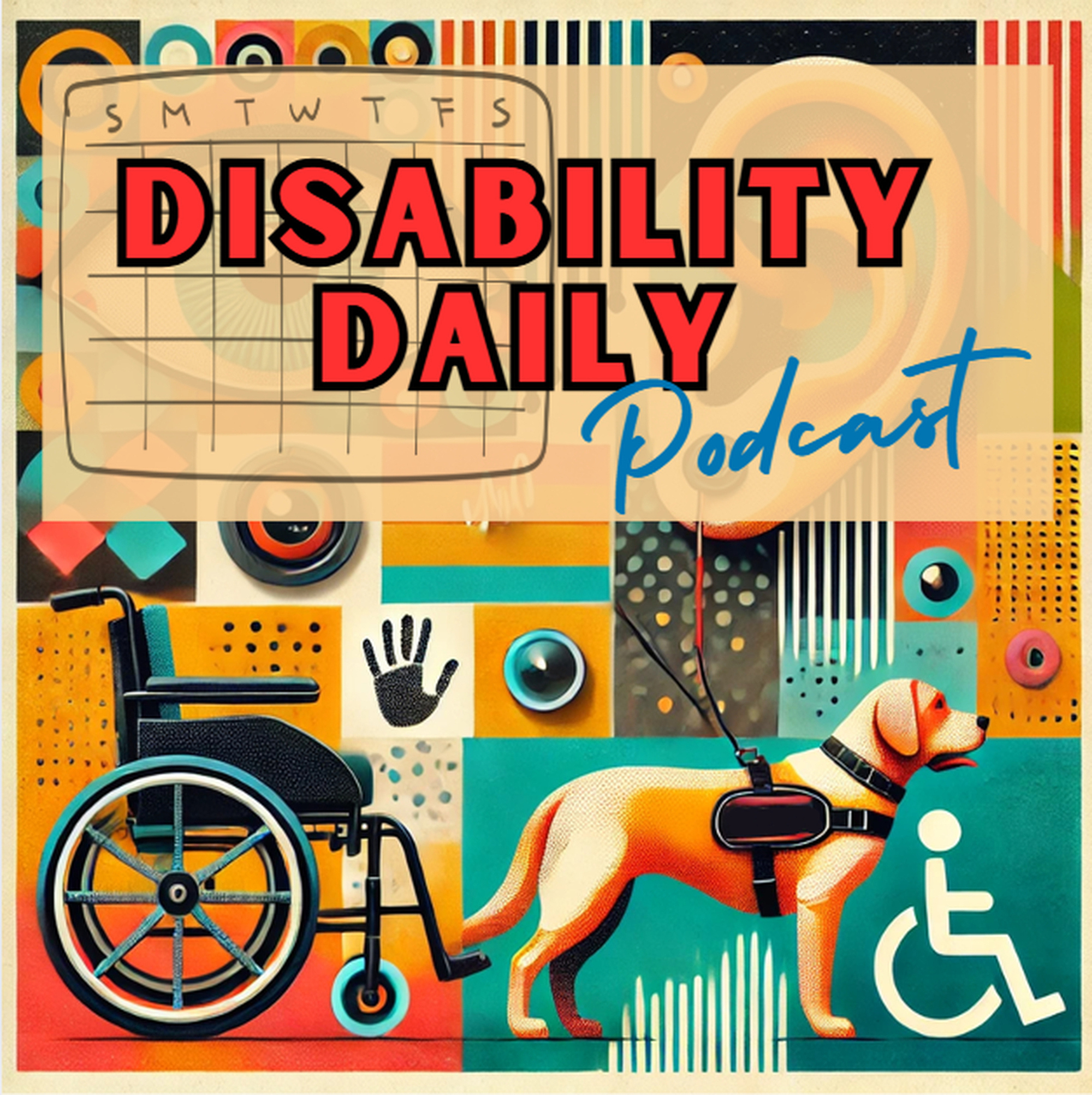
Disability Daily Podcast
Katie Healey, PhD, CPACC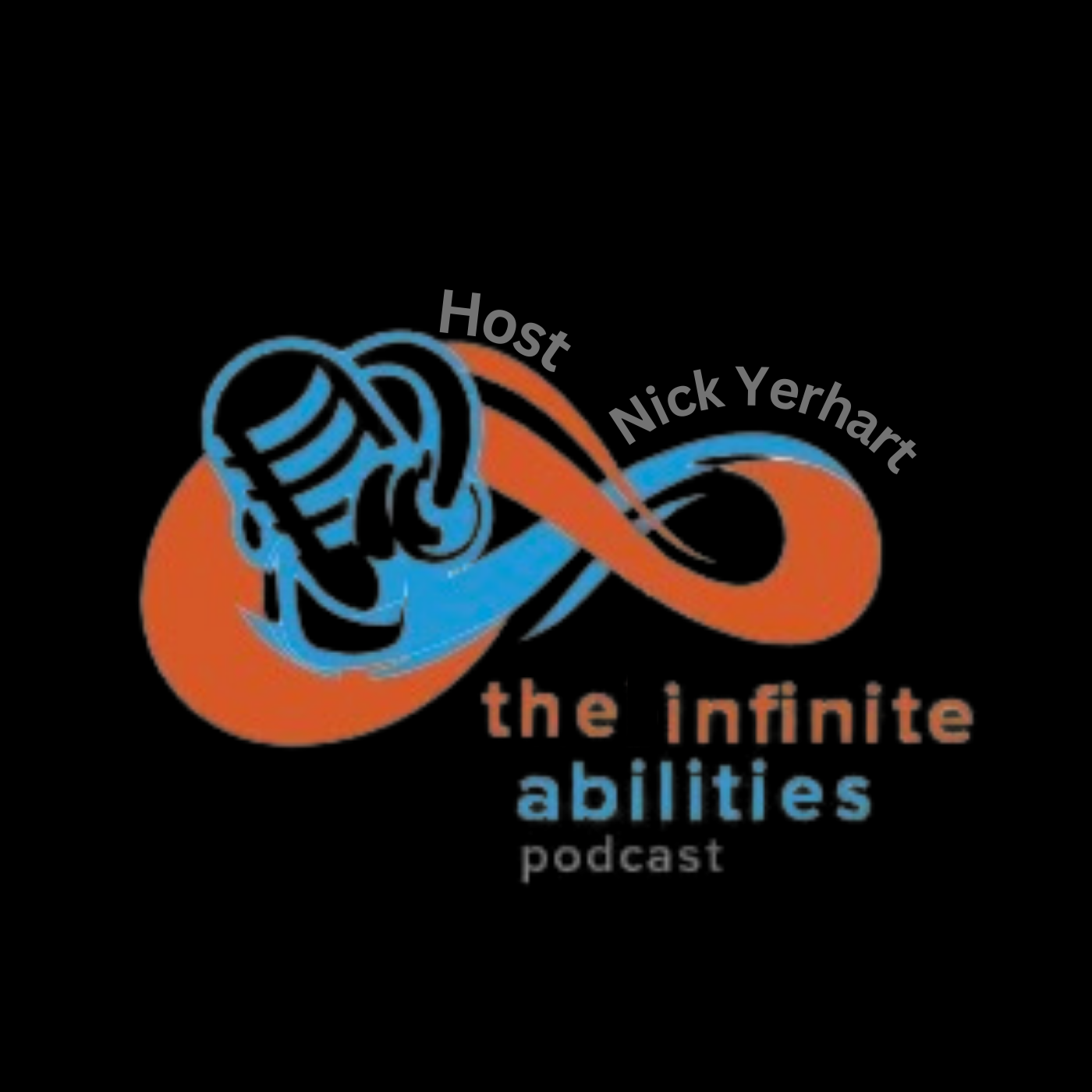
The Infinite Abilities Podcast
Nick Yerhart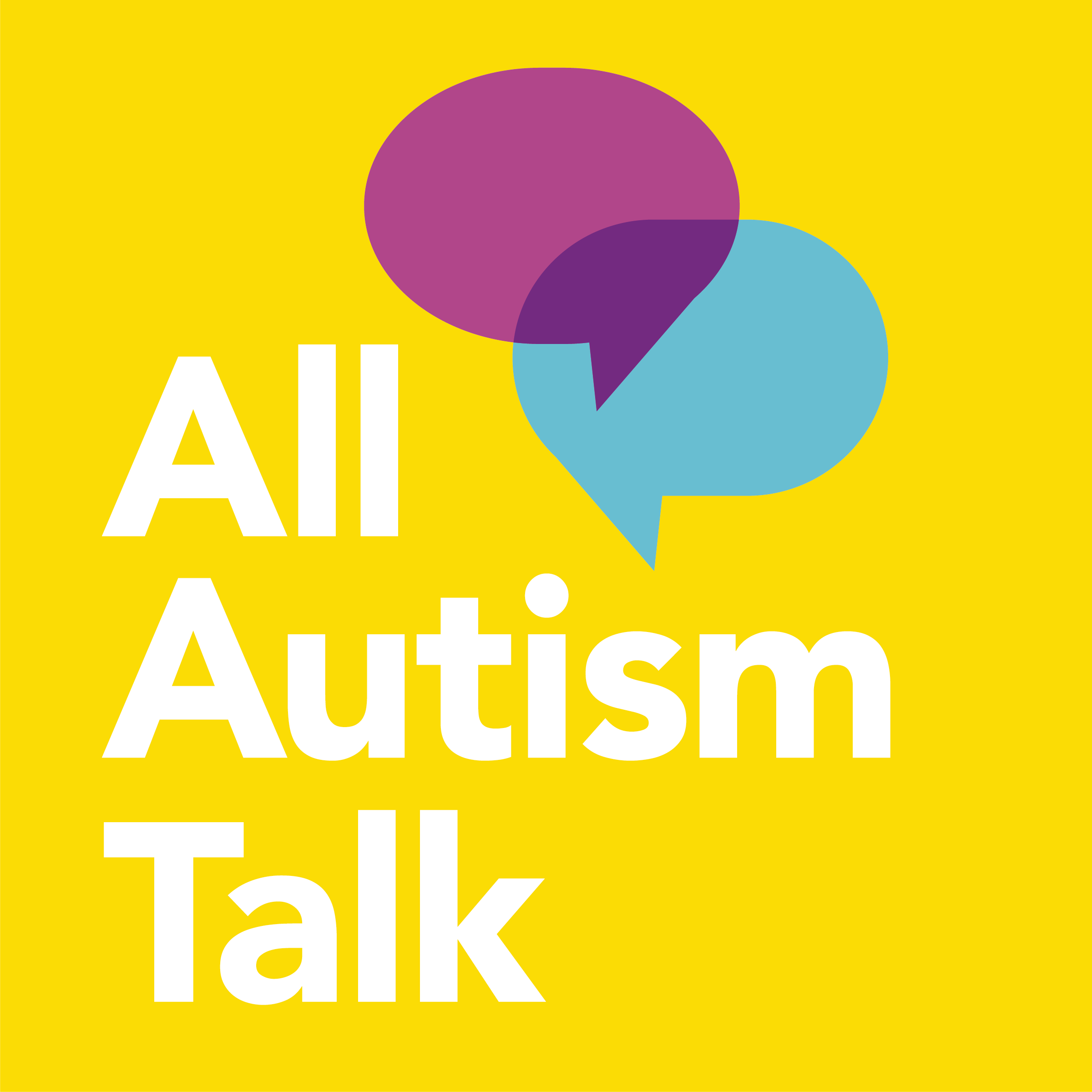
All Autism Talk
All Autism Talk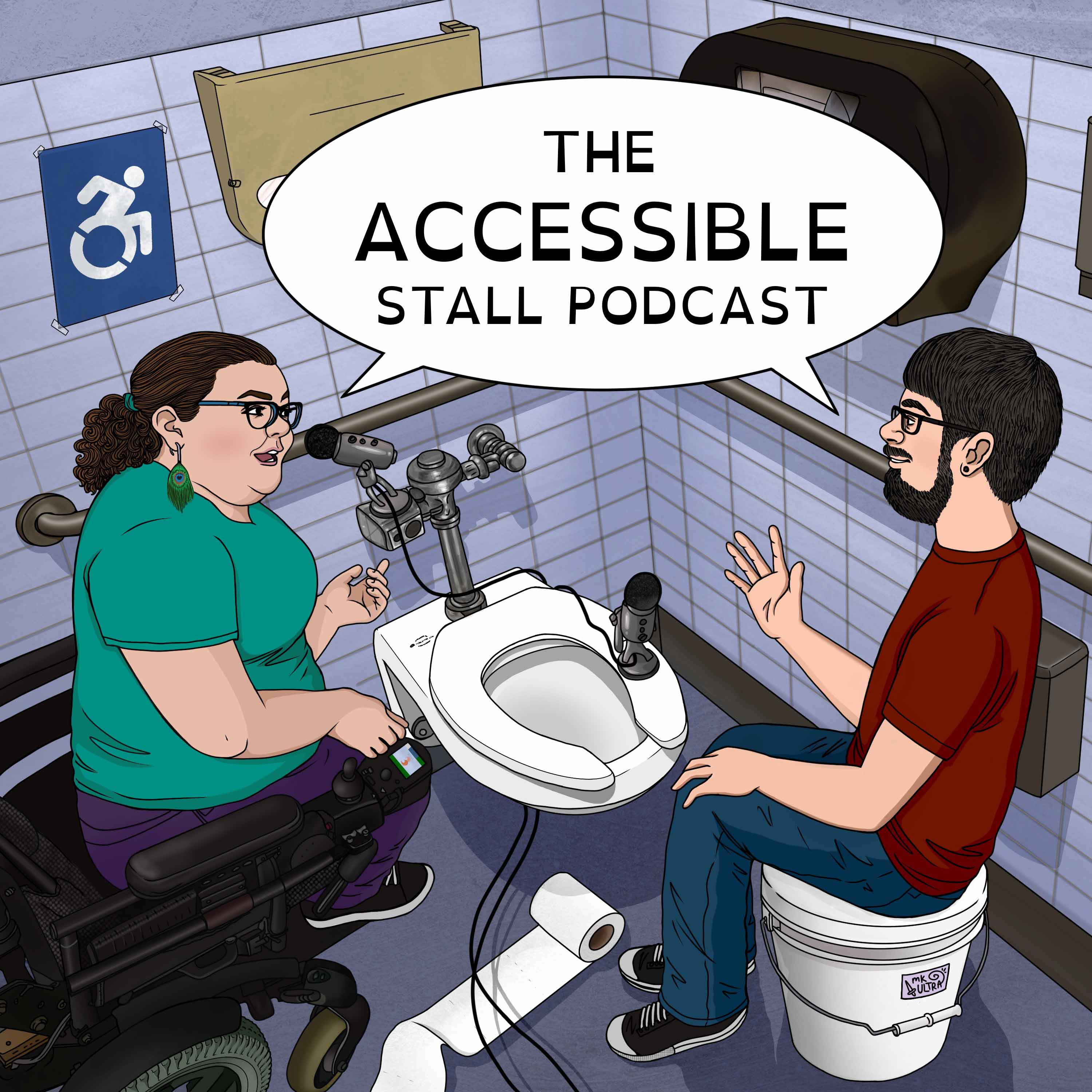
The Accessible Stall
Kyle Khachadurian and Emily Ladau
Disability Deep Dive
Disability Rights Florida
STAY Tuned: Supporting Transition-Age Youth with mental health conditions
STAY Tuned at Transitions to Adulthood Center for Research
Moms Talk Autism Podcast
Shannon Korza, Brittney Crabtree, Tash Dillmon, and Jean Mayer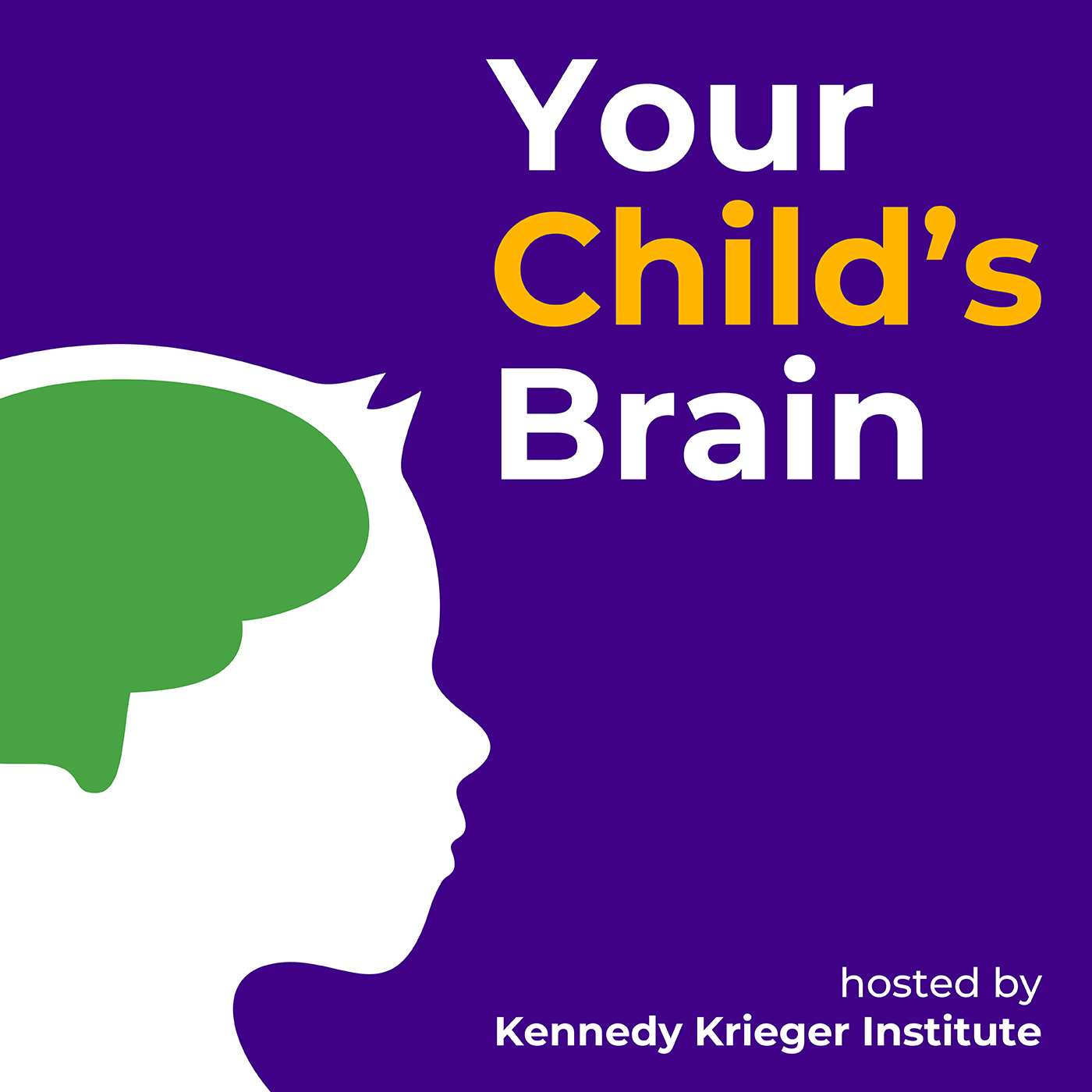
Your Child's Brain
WYPR Baltimore




